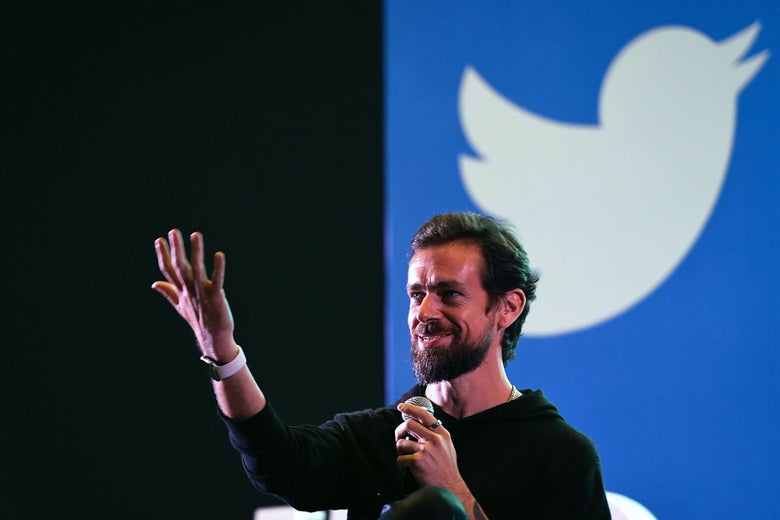
Twitter CEO and co-founder Jack Dorsey announced the ban in a tweet thread.
PRAKASH SINGH/AFP/Getty Images
On Wednesday, Twitter CEO Jack Dorsey announced that the platform would stop running political ads globally. “While internet advertising is incredibly powerful and very effective for commercial advertisers, that power brings significant risks to politics, where it can be used to influence votes to affect the lives of millions,” Dorsey wrote in a thread about the decision.
The CEO further argued that the reach of a political message should be earned based how users respond to it, and that paying to boost a post’s reach compromises that dynamic. He pointed out that emerging online trends such as deepfakes, misinformation, and machine-learning-based ad targeting are accelerating at a rapid pace and threaten to warp political conversations. In a final tweet, Dorsey maintained that this is not a matter of free expression, but rather the way in which money amplifies speech. Business analysts estimate that money from political ads likely does not make up a large portion of Twitter’s revenue.
Twitter will release the details of the new policy on Nov. 15 and being enforcing it on Nov. 22. The ban will apply to both ads purchased by campaigns and those having to do with political issues. Dorsey indicated that the company was concerned that allowing issue ads would create a loophole in the policy. He clarified that there will be a few exceptions for certain topics, such as voter turnout efforts.
Dorsey’s thread reads as series of subtweets aimed at Facebook and its CEO Mark Zuckerberg. For the past month, Facebook has struggled to defend its policies on political ads. The controversy began in early October when the Trump campaign began running an ad containing the unfounded claim that Biden had pressured Ukraine to fire a prosecutor in order to help his son evade an investigation. Facebook declined to take down the ad and maintained that candidates’ language—including ads—are exempt from fact-checking.
Zuckerberg then gave a wide-ranging speech on free expression at Georgetown University, arguing that the company was fighting to give more people a voice. During a congressional hearing a week later, lawmakers grilled the CEO on the ad policies. He defended his free-speech position but also promised that Facebook would be cracking down on disinformation in the run-up to the 2020 election.
One of Dorsey’s tweets seemed like a particularly pointed criticism of Zuckerberg’s arguments, complete with a winking emoji:
Twitter itself had initially declined to take down the false Trump ad as well, telling the New York Times that it complied with the platform’s policies. The move to ban all political ads is a marked departure from the approach that has landed Facebook in hot water, but it’s not without its risks. (Neither platform has opted to go the route of fact-checking political ads.) As Dorsey noted, “Some might argue our actions today could favor incumbents.” Indeed, political science research suggests that ads are more helpful to challengers who are trying to establish name recognition than they are to incumbents who already receive a lot of free media coverage. The Twitter CEO countered that there have been many political movements that achieved success without the help of ads.